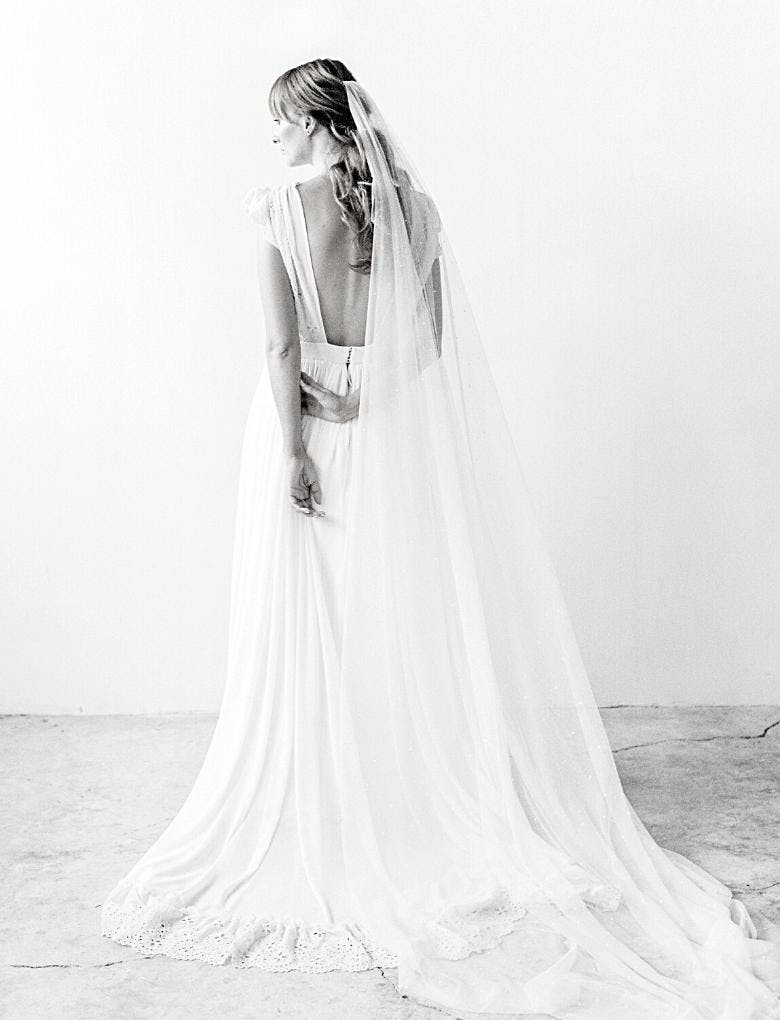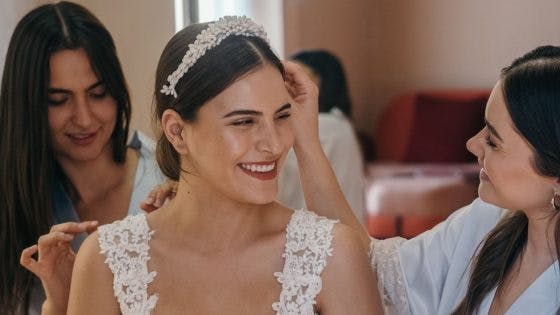The Real Cost Of Bridal Beauty
6 minutes read
Weddings can be expensive. And although elements like the venue and catering tend to take up a large portion of the most people’s budgets, there’s one more category that’s been gaining loads of momentum recently: bridal beauty.
Every year, the number of treatments and procedures that go into looking perfect on your big day seem to increase.
With peak wedding season in the UK falling between May and October, we wanted to understand the true cost of bridal beauty. So, Beauty Daily conducted a survey, interviewing 2,000 women between the ages of 18 to 54. Our aim was to understand what really went into wedding beauty planning: the treatments booked, the budgets, the mindset.
Despite the booming bridal beauty market, we found that 68% of women interviewed opted for at-home pampering treatments to save money. This isn’t surprising considering the current cost-of-living crisis in the UK, it’s certainly worth knowing how to avoid the tanning booth and do your own fake tan at home.
Plus, beauty treatments don’t come cheap. There’s an endless list of things you can have done. Here’s everything the survey revealed about UK brides.
The most popular bridal beauty treatments
Based on the survey results, these were the most common beauty treatments that brides-to-be are booking:
- Haircut, 72%
- Hair colouring, 54%
- Wash & blow dry, 51%
- Waxing, 37%
- Acrylic nails, 37%
- Pedicure, 35%
- Shellac/gel manicure, 34%
- Facial, 31%
- Hair treatments, 28%
- Spray tan, 25%
The real cost of bridal beauty
As we know, spending on beauty isn’t restricted to actual costs of hair and make-up on the big day. In the months and days leading up to the wedding, brides tend to book in various treatments including facials, haircuts, spray tans and manicures.
The survey results also made it clear that younger brides are more inclined to spend more money on beauty. Ahead of their wedding days, 41% of 25 to 34 and 34 to 44-year-olds spent £100-£300 on beauty treatments ahead of their big day, whilst most 45 to 54-year-olds only spent up to £100.
On the day of the wedding, hair and make-up costs can vary. A small percentage (3.5%) of women admitted to paying between £500 and £3,000 (or more) on it. The majority (87%) allocated up to £300 for hair and make-up.
But the costs don’t end there. 51% brides also paid for hair and make-up for members of their bridal party. 44% shared that they spent anywhere between £100 to £300, and 21% between £300 to £500 on beauty treatments for friends and family.
Out of those that responded ‘yes’ to choosing at-home beauty treatments in the run up to their wedding day, 21% decided to give their hair the TLC it needed at home, 14% self-waxed and 12% did their own nails.
But even this group agreed that there were some treatments that we best left to the pros. Hair was high on this list. 72% of brides spent on getting a haircut at the hairdressers, 54% got their hair coloured professionally and 51% paid for a wash & blow dry. Professional waxing and acrylic nails followed at 37%.
Bonus tip: To prep your skin before the big day, make sure you’re using the right skincare. Clarins is currently offering three free skincare minis, plus your choice of Lip Perfector if you spend £90 or over on the site. Just use the code WEDDING at checkout. Find more details here.

The pressure to look perfect
The real cost, however, seems to be the mental toll weddings can take on brides – the quest for perfection is, after all, never-ending.
The survey revealed a number of insecurities women associate with bridal beauty. But the predominant worry? Our bodies.
When asked about their biggest insecurity relating to their bridal look, over 20% of women shared weight-related troubles. Next on the list was hair at 15%. Other common concerns were make-up, skin and teeth.
What’s important to remember is that stress not only affects you on a mental and emotional level, but also on a physical level.
“Stress tends to make us feel less ‘present’. It also means that we may feel ‘wobbly’, excessively emotional, or even physically sick,” explains Dr Richard Reid, Psychologist, and Member of The British Association for Counselling and Psychotherapy (BACP).
He adds: “It may also adversely affect our appearance by causing us issues such as skin irritations or disrupted sleep. Above all else, it’s far less likely that we actively enjoy the wedding experience as it happens.”
Zoe Burke, a wedding expert and Editor at Hitched.co.uk, states: “If you’re feeling the pressure to look perfect on your wedding day, I recommend talking to your wedding photographer. They will have heard it all before, and their job is to capture the best of your wedding day. They will be able to reassure and advise you about your photos. You hired them because you love their work, right? And I can guarantee that everyone they’ve worked with before you was a human being with their insecurities and flaws, but you saw pictures you loved. Your pictures will then become an inspiration for more couples too!
Also, refresh who you follow on social media – we love a good body positivity campaigner here at Hitched. Start following people who make you feel empowered. The key to being a body-positive bride is understanding you are more than how you think you look to other people. You are marrying someone who loves you for you, and I can promise you will glow on your wedding day as you’ll be on cloud nine.”
Where does this pressure come from?
When you’re planning a wedding, stress can bombard you from so many directions.
“The sheer cost and logistics of co-ordinating a big social gathering make it stressful, but there are often conflicting demands and expectations from friends and family, and difficult family relationship dynamics to negotiate,” says Dr Reid.
Dr Reid emphasises the negative effects of films, magazines and social media posts telling us how “the big day” should be. On top of this, of course, is the pressure to match unrealistic beauty ideals.
During the survey, we asked women whether social media played a role in making them feel more pressure to look perfect. Over 50% of the respondents admitted that it did.
How to manage the pressure
“If you find yourself starting to feel the pressure, try to think about the language that sits behind trigger situations,” Dr Reid explains. “Anything that could translate as a ‘should’, ‘have to’, or ‘must’ is likely to be a source of pressure.”
He adds: “Rather than accepting these beliefs as firm rules, try to relieve the pressure by changing them to preferences e.g. ‘I would prefer’ or ‘they would like’ – this subtle switch of language still allow us to address our hopes or the needs of others, but in a less demanding way which allows for compromise.
Most brides want to look good on their wedding day but try to limit the amount of thought that you give to this to times when you can use this focus constructively. If the thoughts are not adding immediate value, then move away from them by distracting yourself with other activities such as picking up the phone to a friend and discussing something totally unrelated.”
Next read: Relaxing podcasts to curl up with now
Sign up for our newsletter
We will keep you in the loop for special offers, exclusive gifts and product news.

